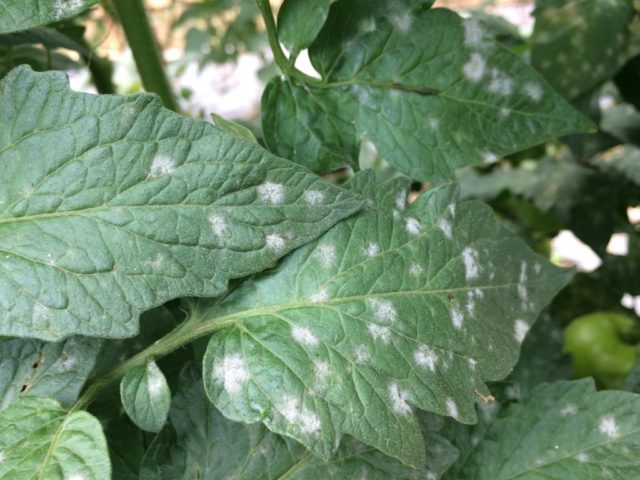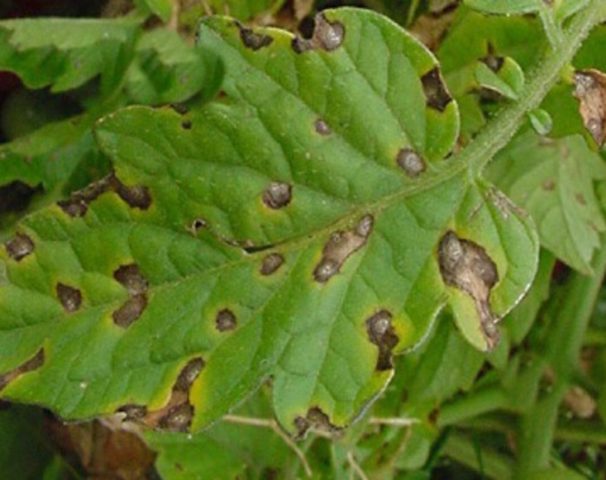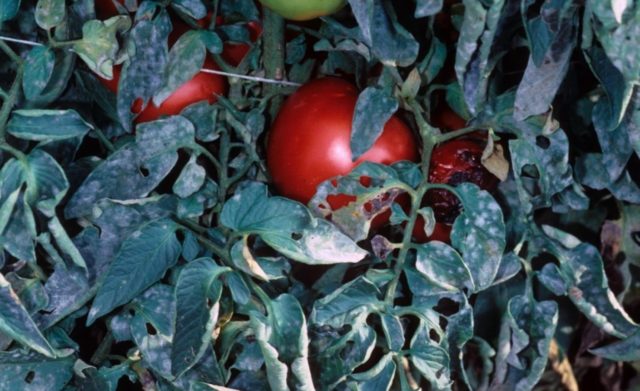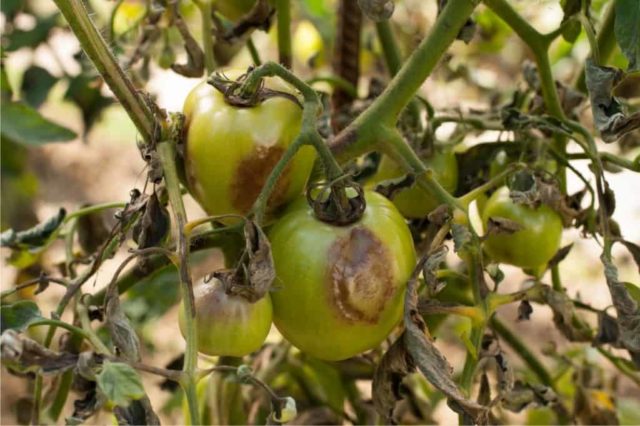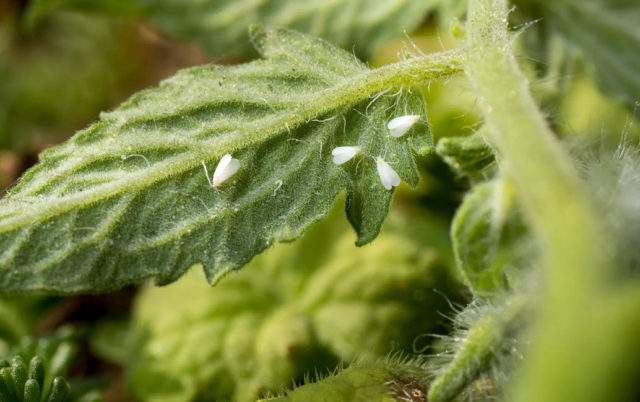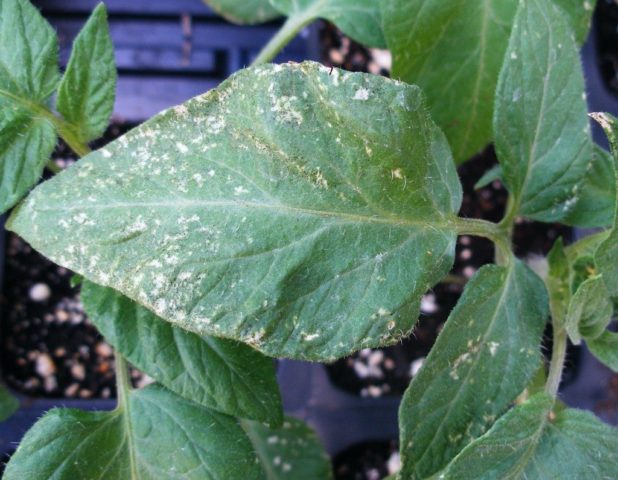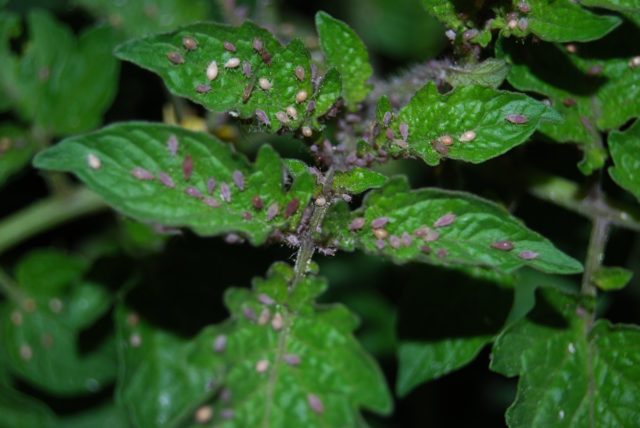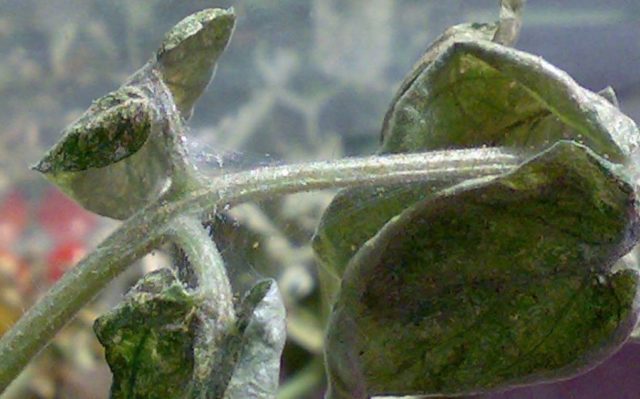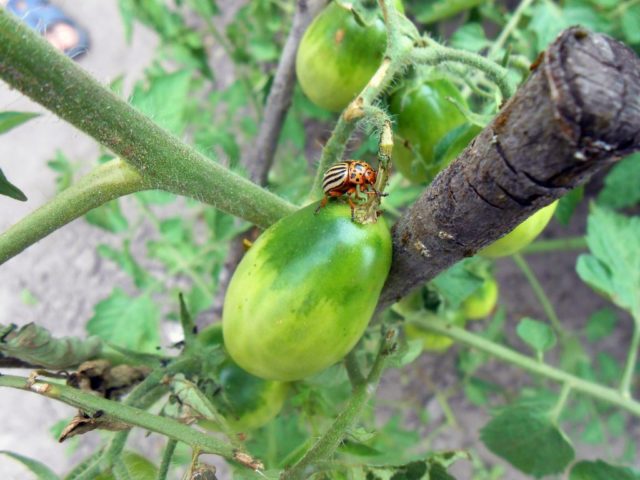Content
Tomato Shaggy bumblebee surprises everyone who sees it for the first time. The fruits resemble peaches due to the presence of the edge. In addition, they have excellent taste. And along with the simplicity of its content, the variety is becoming more and more popular with summer residents.
Breeding history
Tomato variety "Shaggy Bumblebee" is included in the State Register of Breeding Achievements Approved for Use. It is intended for growing in open ground and under temporary film shelters in private household plots. The originator is the Altai Seeds agrofirm, registered in the city of Barnaul.
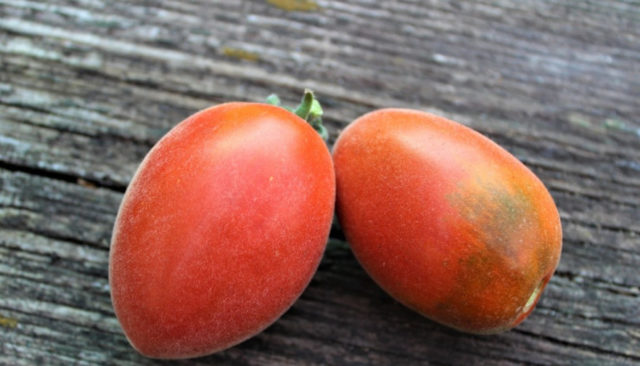
The variety is protected by a patent for breeding achievements
Description of tomato variety Shaggy bumblebee
The variety bred by Altai breeders is determinant, standard, undersized. Its features include:
- stems are strong, compact;
- plant height - up to 60 cm;
- the appearance of 7-8 brushes during the growing season;
- flowering is simple;
- education on one branch up to 7 fruits;
- leaf plates of medium size, pubescent, dark green with a silvery shade.
Ripening of tomatoes "Shaggy bumblebee" occurs in the mid-early period. The period from the emergence of sprouts to ripeness is 95-105 days. It can be reduced by pinching. To get a harvest faster, gardeners carry out this operation on the entire plant to the bottom brush.
The culture is suitable for growing in various conditions:
- in greenhouses;
- under a temporary PVC cover;
- in the open field.
Description of fruits
Tomatoes of the "Shaggy Bumblebee" variety are plum-shaped, cylindrical, with an elongated lower part. Their distinctive feature is the presence of light pubescence on a dense, smooth skin. Due to this, the variety is called "Siberian peach".
Ripe fruits reach a weight of 135 g, are easily separated from the stem. In the context, they are four-chambered. The pulp is fleshy, has a moderate juiciness. The color of the tomatoes is green at first. The stalk has a darker shade. Ripe tomatoes are red-orange.
Characteristics of the tomato Shaggy bumblebee
The culture is remarkable in that it is capable of adapting to temperature extremes, sudden changes in the weather. In addition, the "Shaggy Bumblebee" variety is characterized by good transportability and keeping quality. Fruits rarely crack.
Tomato yield Shaggy bumblebee and what affects it
Subject to the recommendations for caring for the variety, the yield from each bush reaches 2-3 kg. This indicator is stable. When converted to planting area, it is 5-9 kg per 1 m2.
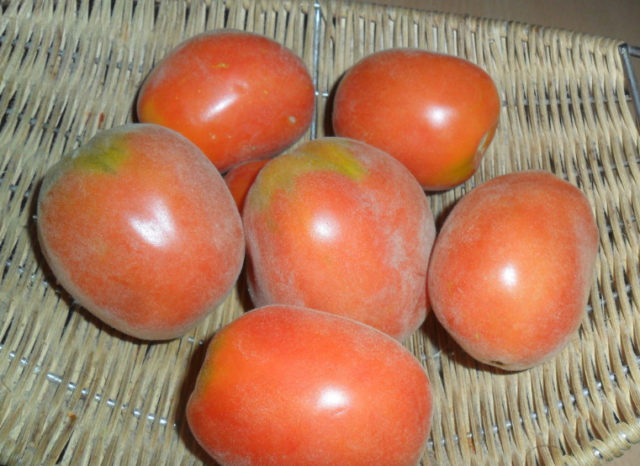
Tomato fruits are stable and transportable, not prone to cracking
Disease and pest resistance
Tomato variety "Shaggy Bumblebee" is attacked by pests. For this reason, plants require careful maintenance and regular preventive treatments.
Scope of the fruit
Tomatoes are eaten fresh, and also used for canning. The fruits are closed in their own juice, whole, and sauces are also prepared from them.
Advantages and disadvantages
Variety "Shaggy Bumblebee" is unusual, and at the same time undemanding to the content. Its features amaze gardeners who are just getting to know it. The culture bred in Siberia has its pros and cons.
Benefits of "Shaggy Bumblebee" tomatoes | Disadvantages of the variety |
Versatility, the ability to grow both in greenhouse conditions and in open beds | The need for regular feeding |
Good taste | Possibility of damage by pests |
Resistance to temperature extremes and various climatic conditions |
|
Undemanding to watering |
|
Preservation of presentation during transportation |
|
Keeping quality |
|
Fresh consumption and for preparations |
|
Features of planting and care
Tomatoes "Shaggy Bumblebee" are unpretentious. Their cultivation does not require much effort and a huge amount of time.
How to plant seedlings
Seeds for seedlings are planted in March. The soil for them is prepared in advance. It should be loose and nutritious. When choosing the sowing time, they are guided by the expected date of transfer of seedlings to open beds. The period for growing plants in containers is from 55 to 60 days.
Landing is carried out as follows:
- Take containers with drainage holes, fill them with soil.
- Moisturize.
- Make small holes. The distance between them should be about 4 cm.
- Place in each seed.
- Lightly sprinkle with earth, carefully tamp.
- Cover with foil from above.
- The container is placed in a room where the air temperature is maintained at +25 ° C.
Tomato sprouts appear above the soil surface after 7 days. As soon as they hatch, the planting container is moved to a cooler place. Provide additional lighting for 12 hours a day.
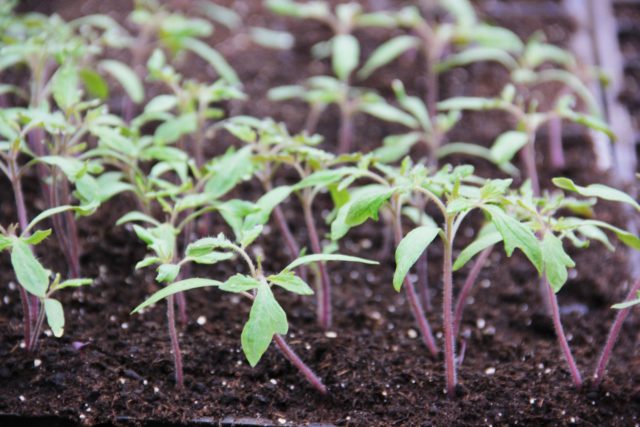
For seeds to germinate faster, they can be treated with growth stimulants.
Picking
When 2-3 true leaves are formed on the seedlings, they dive. To do this, take separate small pots or cups with a volume of about 500 ml.
Open ground transplant
Before replanting young plants, they must be hardened. For this, the “Shaggy Bumblebee” tomatoes are placed on balconies or terraces. It is desirable that the temperature on them be kept around + 15 ° C. The time spent in the coolness is increased gradually. After 2 weeks, the culture is ready for transplantation. It is placed in open beds so that there are up to 5 bushes per 1 m2. Further growth and development depend on the growing conditions.
Features of caring for tomatoes Shaggy bumblebee
In order for the plants to be healthy and bear fruit, it is enough to perform the following agrotechnical procedures:
- watering;
- weeding;
- loosening the soil;
- mulching with organic substances;
- preventive spraying against insect pests and diseases.
Fertilization is an important part of cultivating a variety. It is recommended to feed the crop once a month at the following stages of plant development:
- during flowering;
- with the formation of ovaries;
- at the time of fruit ripening.
Mineral phosphorus and potash fertilizers are used.
Pest and disease control methods
Tomato can affect the following diseases:
- White spot... It is manifested by the formation of large grayish spots with a black edging on the leaves. It affects plants in late summer, in hot weather. They need to be destroyed to protect healthy specimens.
- Brown spotting. It is typical for greenhouses, as it is caused by a fungus. The symptom of the disease is yellow spots on the leaf plates. They turn brown over time.When a fungus appears, greenhouses are treated with formalin.
- Powdery mildew... It can be identified by the presence of white bloom on the foliage of the "Shaggy Bumblebee", which gradually passes to the stems. Occurs in high humidity and heat. At the first signs of damage, the plants are sprayed with fungicides.
- Late blight... It is considered the most common disease in tomatoes "Shaggy bumblebee", which can lead to the death of plantings. Its signs are brownish watery spots that penetrate into the flesh of the fruit and become covered with a whitish bloom. The disease also affects the leaf plates. They also develop light markings. Late blight usually occurs in late summer and early autumn. At the first symptoms, the affected leaves are torn off and burned. They are treated with fungicides.
Among the insects that can harm tomatoes, the following are common:
- Whitefly... It feeds on plant sap, accumulates on the lower surface of the leaves, which are covered with yellowish spots. The insect is dangerous because, with a large number, it is capable of destroying the "Shaggy Bumblebee" tomatoes.
- Thrips. A sign of the appearance of these small black-brown pests on tomatoes is the formation of a large number of spots on the leaves.
- Aphid... Its colonies destroy green mass and fruits. The ground parts of the plants turn yellow, curl and gradually die off. In addition, with an aphid invasion, viral diseases often develop. The insect serves as their carrier.
- Spider mite... The spider web he produced can be seen on the Shaggy Bumblebee tomatoes with the naked eye. Infected bushes may die.
- Colorado beetle... It poses a serious threat to tomatoes, as it eats foliage. His attacks come in late spring.
Conclusion
Tomato Shaggy bumblebee is a variety bred in Siberia that can be grown by summer residents and farmers throughout Russia. Many of them have already appreciated the non-cracking tomatoes with good keeping quality. Their highlight is velvety skin and pleasant taste.
Reviews of the tomato Shaggy bumblebee
